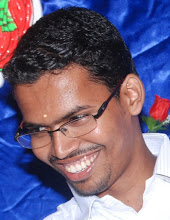Inspiring Personalities:
Today I gonna post about Mr.Karsanbhai Patel, a Low profiled Entrepreneur from Gujarat. His name is not so famous among us, but his Brand Name is !!! Can any one forget the ad “Washing Powder Nirma………….” ? Yeap. He is the founder of Nirma Groups..
Today I gonna post about Mr.Karsanbhai Patel, a Low profiled Entrepreneur from Gujarat. His name is not so famous among us, but his Brand Name is !!! Can any one forget the ad “Washing Powder Nirma………….” ? Yeap. He is the founder of Nirma Groups..
Born into a farmer family from north Gujarat, Karsanbhai
finished his B.Sc. in Chemistry at age 21 and worked as a lab technician, first
in the New Cotton Mills, Ahmedabad, of the Lalbhai group and then at the
Geology and Mining Department of the state Government.
It was in 1969 that Dr. Karsanbhai Patel started Nirma and
went on to create a whole new segment in the Indian domestic detergent market.
He has named it as Nirma in Memory of her Daughter Nirupama, who is no more now
. During that time the domestic detergent market only had the premium segment
and there were very few companies , mainly the MNCs , which were into this
business.
Karsanbhai Patel used to make detergent powder in the
backyard of his house in Ahmedabad and then carry out door to door selling of
his hand made product in his Bi-Cycle. He gave a money back guarantee with
every pack that was sold.Karsanbhai Patel managed to offer his detergent powder
for Rs. 3 per kg when the cheapest detergent at that time was Rs.13 per kg and
so he was able to successfully target the middle and lower middle income
segment.
Sabki Pasand Nirma…
Nirma became a huge success and all this was a result of
Karsanbhai Patel’s entrepreneurial skills.
Karsanbhai Patel had good knowledge of chemicals and he
came up with Nirma detergent which was a result of innovative combination of
the important ingredients.Indigenous method was used ,and also the detergent
was more environment friendly.
Consumers now had a quality detergent powder , having an
affordable price tag.
The process of detergent production was labour intensive
and this gave employment to a large number of people.Nirma focused on cost
reduction strategies to make a place for itself in the market.Nirma has always
been known for offering quality products at afforbable prices and thus creating
good value for the consumer’s money.
In the 1980s nirma moved ahead of Surf , a detergent by HLL
, to caputre a large market share.Later, Nirma successfully entered in the
premium segment of soaps and detergents.Nirma went on to become the largest
detergent and the second largest soap company in India.Nirma had more than 35%
market share in the detergent segment and around 20 % market share in the
toilet soap segment.The company got listed on the stock exchanges in the year
1994.
Nirma adopted backward integration strategy for the regular
supply of raw materials,90 % of which they manufacture themselves.Nirma also
gave due importance to modernization ,expansion and upgradation of the
production facilities.The company also made sure that it uses the latest
technology and infrastructure.
As far as Corporate social responsibility (CSR) is
concerned, Nirma has made some good efforts by starting Nirma Education &
Research Foundation (NERF) in the year 1994 for the purpose of running various
educational institutes.Nirma has also set up Nirma labs , which prepares
aspiring entrepreneurs to effectively face the different business
challenges.Nirma also runs Nirma Memorial Trust ,Nirma Foundation and Chanasma
Ruppur Gram Vikas Trust as a part of their effort as a socially responsible
corporate citizen.
The company that was started in 1969 with just one man who
used to deliver his product from one house to the other,today employs around 14
thousand people .
This is how Forbes Describes about this person Karsanbhai
Patel:
“Born into a farmer's family, he made early fortune with detergent brand Nirma, which is one of the top-selling low-priced detergents. His success forced Unilever and Procter & Gamble to launch cheaper clones. Nirma is now one of India's leading consumer and chemical companies; its soaps and detergents sell through two million retail outlets. In 2004, it expanded into pharma by acquiring an IV fluid factory in Ahmedabad. Also acquired U.S.-based Searles Valley Minerals to become one of the top producers of soda ash in the world. His two sons run the business.”
“Born into a farmer's family, he made early fortune with detergent brand Nirma, which is one of the top-selling low-priced detergents. His success forced Unilever and Procter & Gamble to launch cheaper clones. Nirma is now one of India's leading consumer and chemical companies; its soaps and detergents sell through two million retail outlets. In 2004, it expanded into pharma by acquiring an IV fluid factory in Ahmedabad. Also acquired U.S.-based Searles Valley Minerals to become one of the top producers of soda ash in the world. His two sons run the business.”
Sources: whitekoundinya.blogspot, frenzyindia.blogspot,
businessblog360.com



































